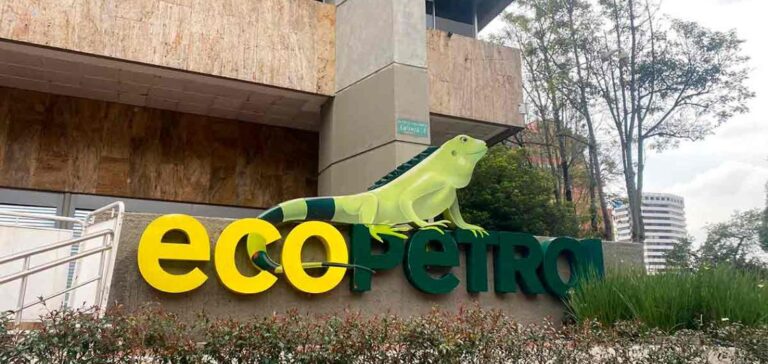Investments in Hydrocarbons
Ecopetrol S.A., a leader in the energy sector in Colombia, has unveiled an ambitious budget for 2025, estimated between 24 and 28 trillion pesos. This plan reflects a significant increase compared to 2024 and is part of a strategy focused on financial discipline and resource optimization.
Nearly 17.2 trillion pesos, or 52% of the budget, will be dedicated to exploration and production. This funding will maintain production levels between 740,000 and 745,000 barrels of oil equivalent per day, divided into 78% crude oil, 17% natural gas, and 5% refined products. Additionally, 455 to 465 development wells will be drilled, primarily in Colombia, supplemented by projects in the Permian Basin and the Gulf of Mexico.
Investments in Transport and Refining
Transport investments will reach approximately 1.5 trillion pesos, allocated to infrastructure integrity managed by subsidiaries such as Cenit Transporte y Logística and Oleoducto Central S.A. The goal is to ensure a steady flow of 1,130,000 to 1,170,000 barrels per day.
The refining segment will receive approximately 1.6 trillion pesos to ensure operational reliability in Barrancabermeja and Cartagena, reduce product imports, and develop renewable fuel projects. The combined refinery load is expected to reach 415,000 to 420,000 barrels per day.
Support for Energy Transition Projects
Around 6.5 trillion pesos, representing 24% of the total budget, will be allocated to energy transition initiatives and related activities. These projects include developing renewable energy, improving energy efficiency, and reducing CO2 emissions. Ecopetrol expects a reduction of 300,000 tons of CO2 equivalent, contributing to its goal of cutting emissions by 30% by 2030.
Focus on Sustainability
As part of its SosTECnibilidad® program, the company will invest 2.3 trillion pesos in initiatives targeting climate change mitigation, biodiversity preservation, and innovation in technology research.
Financial Performance and Expectations
Assuming an average Brent price of USD 73 per barrel, Ecopetrol anticipates a competitive EBITDA margin of 39%, accompanied by transfers to the nation amounting to approximately 35 trillion pesos. Concurrently, the company aims for operational savings of 4 trillion pesos through cost improvements in lifting, refining, and transportation.
Regional Leadership Objectives
Interconexión Eléctrica S.A E.S.P. (ISA), a key Ecopetrol subsidiary, will receive 6.5 trillion pesos, with 90% of these investments directed toward strengthening the electrical transmission network, which will reach 50,400 km by 2025.
Ecopetrol thus reaffirms its leadership position not only in Colombia but also across the continent, with strategic investments spanning oil, gas, renewable energy, and critical infrastructure.






















